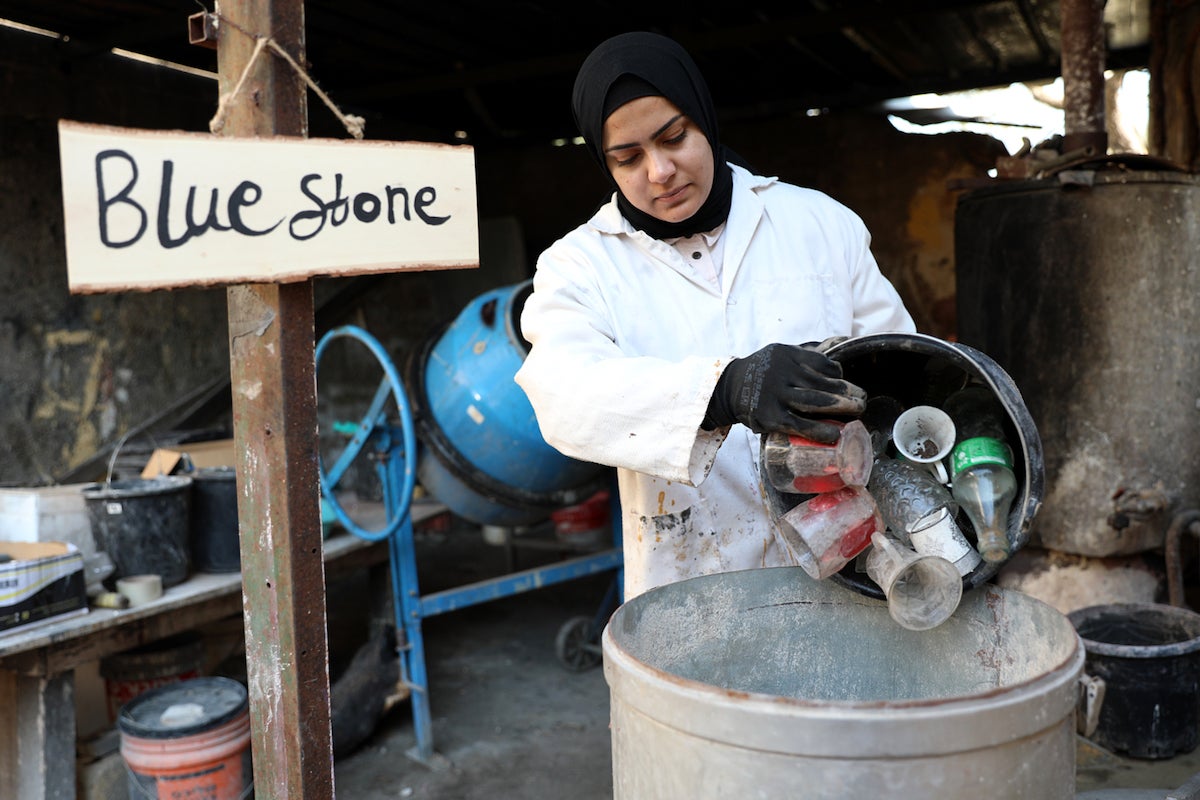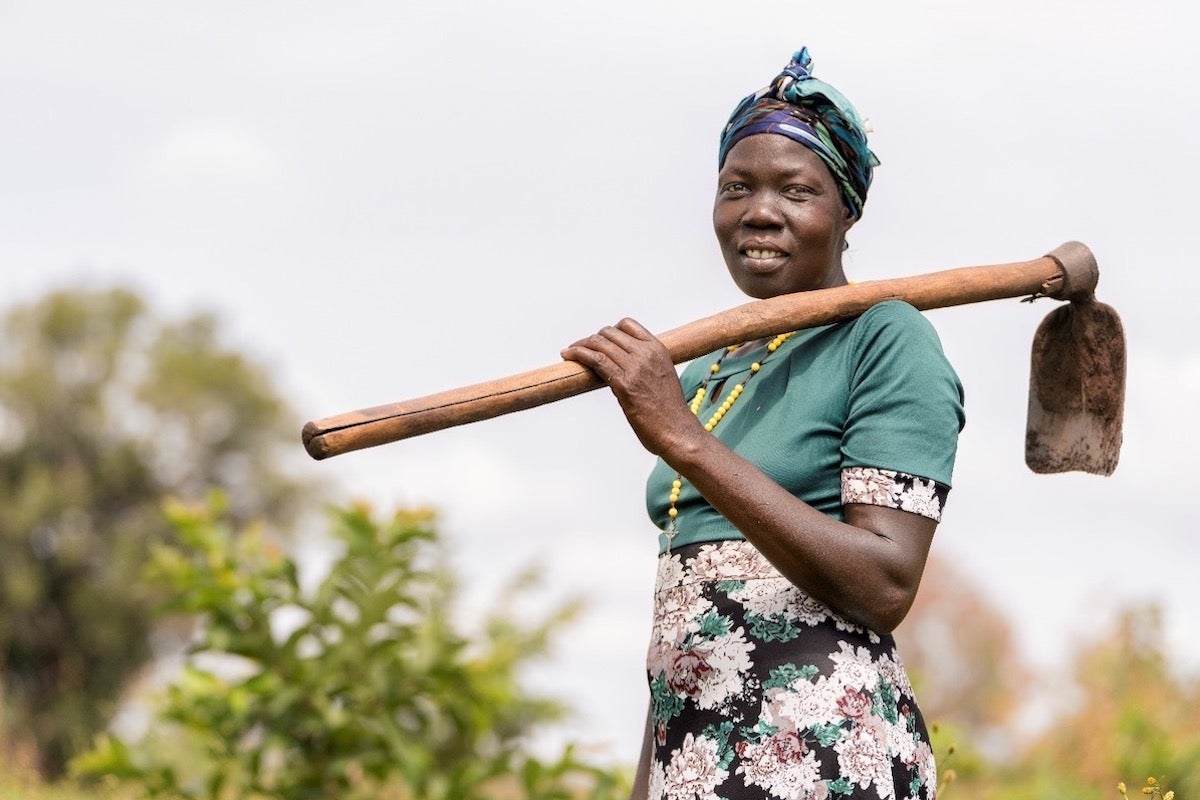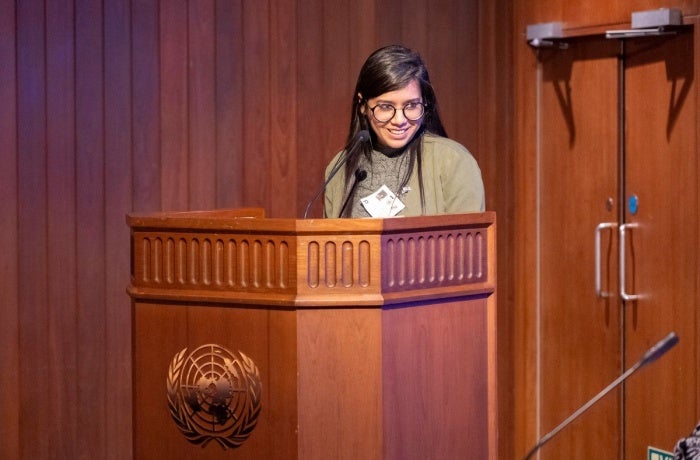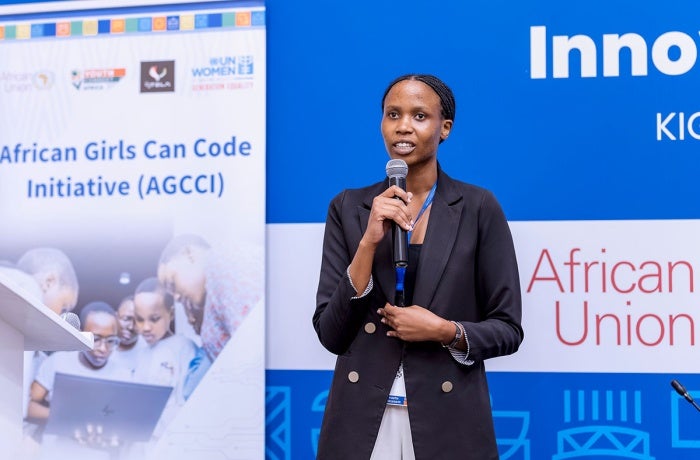Empowering women, protecting the earth
The climate crisis is not gender neutral.
As its impacts worsen, women and girls are experiencing unique and disproportionate harm—with the fallout amplifying existing gender inequalities. Typically more dependent on natural resources and disproportionately responsible for securing food, water and fuel, women are highly vulnerable to environmental shocks. They face heightened exposure to gender-based violence in the wake of conflict and instability exacerbated by climate change, and they are less likely to survive disasters. At the same time, their access to life-saving resources and to key decision-making spaces remains severely limited.
Nevertheless, women remain at the forefront of the fight against climate change, leading prevention, mitigation and adaptation efforts around the world. Research indicates that women’s representation in national parliaments leads to the adoption of more stringent climate policies, resulting in lower emissions. Their leadership in the workplace is associated with greater transparency around climate impact. And their participation in local natural resource management is linked to better resource governance and conservation outcomes.
This Earth Day we’re highlighting the crucial connections between sustainability and gender equality in policy, business, agriculture and beyond. The stories below showcase how women’s empowerment can help protect the environment—and vice versa—in countries around the globe.
In Palestine, building environmental sustainability and breaking discriminatory practices

Rawan Rajab is a 22-year-old Palestinian woman from Kafr Al Libad village, located in Palestine’s West Bank. Combining her passion for the environment and her desire to make a positive impact in her community, Rawan founded “Blue Stone”, an environmentally conscious business that turns recycled glass into eco-friendly stones.
Rawan's journey as a sustainable business owner began in 2020: “During the pandemic, and as the world began to shift to digital platforms, I started enrolling in online courses on business management and entrepreneurship. At the same time, and as a result of the quarantine, the impact of human behaviour on our planet was also apparent,” she explained. “That’s how I got the initial idea to do something that would help the environment.”
With a small amount of funding from an international organization, Rawan started her own glass recycling workshop just 50 metres from her home. She also began a glass-sorting initiative, establishing 10 glass-sorting centres in Kafr Al Libad to help reduce the environmental impact caused by the disposal of glass waste. The initiative engages both women and men, helping to drive equal participation in recycling efforts and to increase awareness of women’s roles in non-traditional industries.
Through the joint programme on “Promoting Productive Employment and Decent Work for Women in Egypt, Jordan and Palestine”, implemented by UN Women and the International Labour Organization and funded by the Government of Sweden, Rawan helps to lead community-based dialogues around gender equality and women’s economic empowerment. By providing training and raising awareness, she hopes to break occupational stereotypes and inspire more women to become leaders within the field of sustainable development.
Rawan’s achievements ultimately led to her participation in COP27, the 2022 United Nations Climate Change Conference at Sharm El Sheikh, Egypt. She also managed to recycle three tons of glass in 2022 alone. Her business serves as a model for sustainable development and motivates women and men in her community to make positive social and environmental impacts.
In Brazil, taking action to end climate change, achieve gender equality and ensure a sustainable future
Brazilian professor and researcher Geovânia Machado Aires, 35 years old, lives in the quilombo of Bairro Novo, located in the municipality of Penalva. She belongs to the Quilombola women, traditional collectors and processors of babassu coconuts, and has inherited a legacy in which women are active protagonists in the preservation of the environment and the achievement of a sustainable future.
Geovânia has dedicated herself to teaching the community that nothing is wasted from the babassu palm; On the contrary, everything is used and transformed through traditional knowledge, passed down from generation to generation. The leaves can be used to make roofs, baskets and decorative objects. Cosmetics are produced from the oil, which can also be used for cooking. The oil and the shell are both sources of fuel. The sale of these products is an essential source of income for Brazilian Quilombola communities.
Climate change has been affecting traditional communities for many years, Geovânia highlights, driving deforestation and fires and heightening the struggle for natural resources: "The impact is palpable in every corner of the environmental protection zones, and those who suffer are the residents at the grassroots level, struggling to survive." At the forefront of the fight against climate change and environmental devastation, Quilombola women are pushing to defend traditional territories, preserve ecosystems, and protect their access to babassu trees.
Today, Geovânia is working to drive change at the policy level, partnering in the project “Human Rights of Indigenous and Quilombola Women: A Governance Issue”, developed by UN Women with funding from the Norwegian Embassy. The initiative is being developed in the states of Maranhão and Pará to place the human rights of Indigenous and Quilombola women at the center of governmental management through the development of policies that respond to their needs and ensure the continuous improvement of their economic and social conditions.
After participating in a public policy training as part of the project, Geovânia has been sharing new knowledge and tools with her community. Through meetings that she’s organized alongside her mother, the community leader Nice Aires, she has reached roughly two thousand women from Penalva. “We still have persistent challenges for our rights to be guaranteed and spaces for dialogue to be opened,” says Geovânia. "Every day, I apply the empowerment values I acquired in the course, especially the recognition of rights and responsibilities.”
In Uganda, increasing agricultural productivity and build resilience to climate change risks

Florence Driciru lives in the refugee host community of Kochi Subcounty in Uganda’s Yumbe District. A farmer and a mother of five, she says she is already feeling the impact of climate change on her livelihood: “The yields have been poor lately. The rains most times come late and when you plant you don’t get much.”
In Uganda, refugees and their host communities are feeling the brunt of worsening climate change. Deforestation and environmental degradation are hitting hard, especially in the refugee hosting districts in the country’s West Nile region. Both refugee and host populations are highly dependent on natural resources in their daily lives, relying on grass and wood for shelter and generating income through farming and the harvesting of forest products.
In 2021, UN Women, with funding from the Government of Japan, partnered with the Yumbe District Local Government to support farmers in the refugee and host communities to improve their farming practices. Florence and other farmers in her community received trainings in climate smart agriculture, as well as better seed varieties—particularly green gram and fruit trees. The group has now planted 25 acres of guavas and mangoes.
“Before this project many of us were used to traditional farming practices without knowing that this leads to poor yields,” Florence explains. “I tried out this new farming method and planted the 500 kgs of green grams that I received from the district local government and I was able to harvest 2,150 kgs. The seed was of good quality and when I applied the methods I learned from the trainings, it led to a good yield.”
In the face of both worsening climate change and growing food demand, climate smart agriculture helps to build resilience among hard hit populations—ensuring both food security and income. For Florence’s community, it is also creating new opportunities for cooperation: “As a group our dream is to establish a grain store,” says Florence. “That way we are able to store the green gram and sell collectively, which enables us to bargain for a better price.”
Read more or watch the video below:









